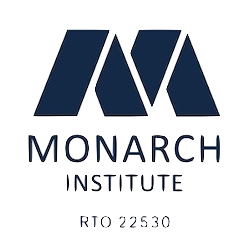Accounting Courses
Money makes the world go round, so it stands to reason that well-organised and accurate financial services are imperative to every individual, business and organisation. Accounting skills are diverse and highly sought after in every facet of financial services.
So, whether you’re looking to get into the workforce, move up in your company, change career paths or start your own business as a ‘numbers expert’, completing an accounting course with an RTO is the right first step.
There are many different levels of Accounting courses to choose from, including:
- Certificate I
- Certificate II
- Certificate III
- Certificate IV
- Diploma
- Advanced Diploma
What do accountants do?
Accountants are generally responsible for the preparation and maintenance of financial documents and records. They ensure all financial transactions are accounted for and prepare financial reports to better inform executives prior to important business decisions.
Some of the most common responsibilities of accountants may include:
- Bookkeeping
- Book auditing
- Ensuring legal compliance
- Drafting and reporting business activity statements
- Handling of tax documents, BAS statements and more
Every business in the world relies on accounting in some way. Whether that means having a specialist in-house or contracting someone on an ad hoc basis, there is always a requirement for this valuable skill set.
What are the career outcomes for an accounting course?
A career in accounting could see you managing the books in a small business or working in the finance department of a large multinational company.
Here are some potential job titles:
What is the job outlook for accounting professionals?
The Australian accounting industry is continuing to grow, with employment opportunities expected to increase by 9.7% by 2024. Although most people who work in accounting choose to work full-time (80%), part-time opportunities are also available.
Due to there being so many different roles and specialisations within accounting, an average salary is difficult to define. According to Job Outlook, a qualified accountant makes an average of $86,320. Someone who works in a more senior role, however, like a finance manager, can make up to $119,000.
What are the types of accounting courses?
There is a huge range of accounting courses available. These courses are offered Australia-wide, with the majority being offered in major cities like Melbourne, Sydney, Brisbane and Perth. From beginner’s short courses to TAFE-level Certificate IVs and Diplomas, all the way up to a Bachelor of Accounting or Bachelor of Business, there is an accounting course for every level. Those who wish to complete further study may continue to complete a graduate diploma or graduate certificate.
Your choice in course should depend on your learning goals. For those looking to enter professional accounting for the first time, or formalise pre-existing skills, a Certificate or Diploma level qualification is recommended.
Short courses
If you’re wanting to dip your toes into the world of accounting a short course might be for you. Short courses vary in length but are generally only a few weeks in length. They can help you to gain a basic understanding of the industry or hone your skills in a particular area depending on the course. These courses have no entry requirements.
Certificate III
A Certificate III qualification will generally be in the area of accounts administration. This is an entry-level course designed as an introduction to the financial services industry. It is a TAFE-level, nationally recognised qualification. Graduates of this course may be employed in roles such as accounts payable, payroll clerk, assistant accountant, customer service, accounts receivable and others. Generally there are minimal prerequisites so applicants without experience in the field may apply.
Certificate IV
A Certificate IV in Accounting gives a more comprehensive look into the basics of accounting. Students will learn fundamentals such as preparing financial statements, maintaining accounting systems (such as MYOB, XERO and others), reporting on business performance, completing BAS statements, preparing budgets and understanding accounts receivable and payable functions. This level of qualification will see graduates placed into roles such as accounts clerk, payroll clerk, BAS agent, accounts payable/receivable or other similar positions.
Diploma
Whilst still a TAFE level qualification, the Diploma of Accounting is slightly more in depth and tends to be longer in duration. Where certificates will typically be less than one year in length, a diploma can take 1-2 years to complete. Graduates have specialised knowledge and skills in the field such as preparing tax returns, reporting on business performance and preparing financial statements. Upon completion, students will be applying for slightly more senior positions such as tax agents, accounts office manager or senior financial clerk.
Is an accounting course right for you?
If you’re good with numbers and you’re good with people, you should invest in your future career and study accounting. Most accounting courses are now delivered online. Online study options provide the opportunity for self-paced learning and flexibility, ensuring study eligibility is achieved for anyone and everyone. So long as you have a basic understanding of information technology and a good internet connection – you’re good to start learning!
If you’re ready to start crunching those numbers and jumpstart your accounting career, enquire about one of our qualifications today.


